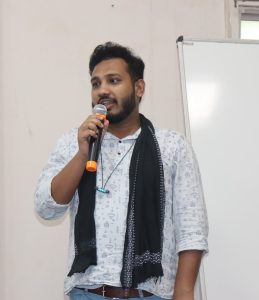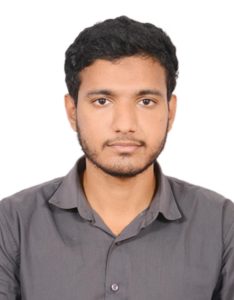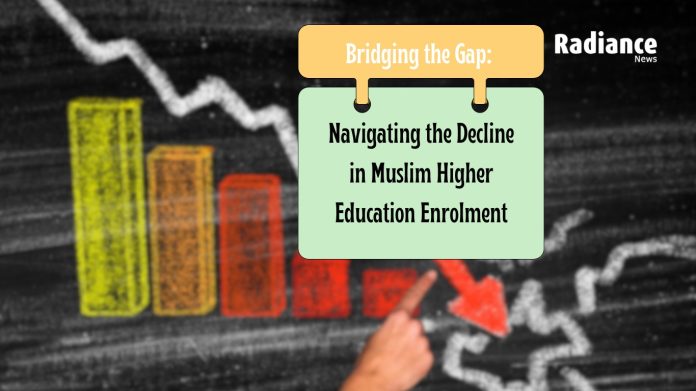Bans on religious clothing, discrimination, and financial struggles all contribute to this decline, making it harder for Muslim students to pursue their academic aspirations.

– Syed Ahmed Ali
Prophet Muhammad ﷺ said: “The acquisition of knowledge is compulsory for every Muslim, whether male or female.” (Ibn Majah)
Education is a lifelong pursuit that enhances both the individual and society. It is the primary tool capable of transforming individuals, families, and societies, ultimately shaping the future of a nation. However, recent reports highlight a concerning trend: a decline in Muslim enrollment in higher education among the age group of 18 to 23. This critical phase lays the foundation for the future, where individuals decide to delve into core fields, becoming experts and designing their future.
To understand the reasons behind the declining Muslim enrollment in higher education, we engage in a dialogue with students such as Amreen Siddiqui from Delhi University, currently pursuing B.A. Programme in Finance & Economics; Mr. Imran Hossein, National Secretary of Students Islamic Organisation of India (SIO) with Masters in English from the University of Kolkata, and Aamir Fahed Shaik, PGDP Environmental Law, Energy Engineer JCI.
 Amreen Siddiqui B.A. Programme (Finance & Economics), Delhi University
Amreen Siddiqui B.A. Programme (Finance & Economics), Delhi University
The decline in Muslim students pursuing higher education, highlighted in a recent report titled “The State of Muslim Education in India,” sheds light on concerning trends. Analyzing data from educational surveys reveals a gradual decrease in the enrollment of Muslim students from lower to higher classes, significantly affecting their representation in higher education.
The decrease in Muslim students pursuing higher education stems from several hurdles they face. Bans on religious clothing, discrimination, and financial struggles all contribute to this decline, making it harder for Muslim students to pursue their academic aspirations.
To address this, inclusive policies that respect diverse religious practices are essential. Creating an open environment through conversations, awareness programs, and supporting a blend of secular and religious education can help break down barriers. Additionally, educating parents about the advantages of a balanced education incorporating both secular and religious knowledge is crucial in reshaping attitudes.
This issue goes beyond numbers – it reflects the complexities of our society. Understanding the value of diverse education that integrates secular and religious teachings is crucial for personal growth and academic enrichment.
Collaborative efforts are vital in overcoming these challenges. This requires fair policies, open discussions, and guidance for parents. By recognizing the significance of varied education, wherein both secular and religious knowledge are valued, we can create equitable opportunities for everyone to learn and prosper, irrespective of their beliefs. This inclusive approach not only fosters academic growth but also contributes to a more harmonious and understanding society.
 Imran Hossein, National Secretary of SIO of India, Masters in English from the University of Kolkata
Imran Hossein, National Secretary of SIO of India, Masters in English from the University of Kolkata
The sudden decline in Muslim enrollment in higher education since the satisfactory results of 2019-20 is a cause for concern. Despite increased awareness about education among Muslims, the reduction in the Maulana Azad Fellowship by the central government has played a significant role in limiting access for financially underprivileged Muslims in India. Additionally, prevalent communal atrocities against Muslims in India have created a hostile environment, dissuading parents from sending their children to universities. Instances like Najeeb’s disappearance from JNU and Faizan’s murder in IIT Kharagpur exemplify these challenges.
To address this issue, Muslims should take proactive measures to improve the situation and boost enrollment in higher studies. Creating an atmosphere of hope and courage is essential for encouraging parents to send their children to universities. Existing Muslim students in universities can contribute by assisting students from their hometowns and actively promoting enrollment. Financial instability can be alleviated through Zakat and donations, with Muslims contributing a portion of their Zakat to support needy students. Muslim organizations in India should prioritize education as a central focus of their activities to facilitate positive change.
 Aamir Fahed Shaik, PGDP Environmental Law, Energy Engineer JCI
Aamir Fahed Shaik, PGDP Environmental Law, Energy Engineer JCI
After reviewing the latest AISHE report on higher education, there is a consistent increase in numbers, from GER to GPI, and from infrastructure to the competition between communities in the race for higher education with all possible support.
The Indian higher education system witnessed an increase in student enrollments in January 2023, showing a 7.5% rise compared to 2019-20, with total enrollments reaching 4.13 crores. The Gross Enrolment Ratio (GER) for all enrollments (as per the 2011 Census) increased by over 2 points to 27.3. To meet the growing demand, 70 new universities and 1,453 colleges were established.
The pandemic played a significant role, with a 7% increase in distance education enrollments. However, in the same report, it is crucial to highlight that the GER for higher education among Muslim students in India is lower compared to the overall GER, standing at 16.5%. In contrast, rural education status reaches 27.5%, and urban enrollment stands at 33.4%. Despite this, minority students, including Muslims, Christians, Sikhs, Buddhists, and others, have a total enrollment of 5.39 million, indicating some progress in addressing their underrepresentation in higher education.
The underrepresentation of the Muslim community at each level remains a major concern, considering the community’s significant presence in the country. Despite being the second-largest majority, it ranks last in all indicators. Initial spending on higher education, with reservation support, scholarships, and special areas, is in a declining position. Significant fund cuts in MANF for Muslims and a lack of infrastructural support in minority-concentrated districts (MCD) contribute to the decline in enrollment. Without proper financial support and economic development, the community is demotivated to pursue higher studies.
Hope extends beyond Articles 29 & 30 of our Constitution, which guarantee religious and linguistic minorities safeguarding of their cultural and educational rights within a framework of equal opportunities and inclusive development policies. With more than half of the Muslim population being under 25, forming the largest youth population in the country, affiliated campuses of JMI, AMU, and MANUU need to be allocated in Muslim-concentrated districts with special attention as a prerequisite.
Muslim intellectuals closely observe that current policies seem biased and intentionally keep the second majority undeveloped. On the other hand, well-organized and highly motivated agendas for their rights need to be implemented to make the community contribute in the fields of science, technology, and morality.




